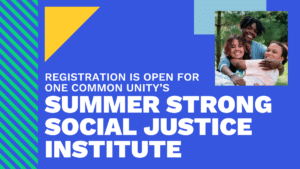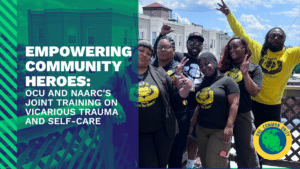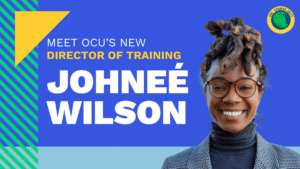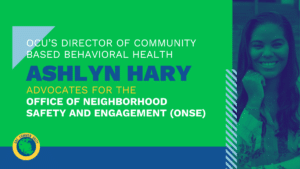Peace Together: What Is It & How Can You Bring It To Your Community?
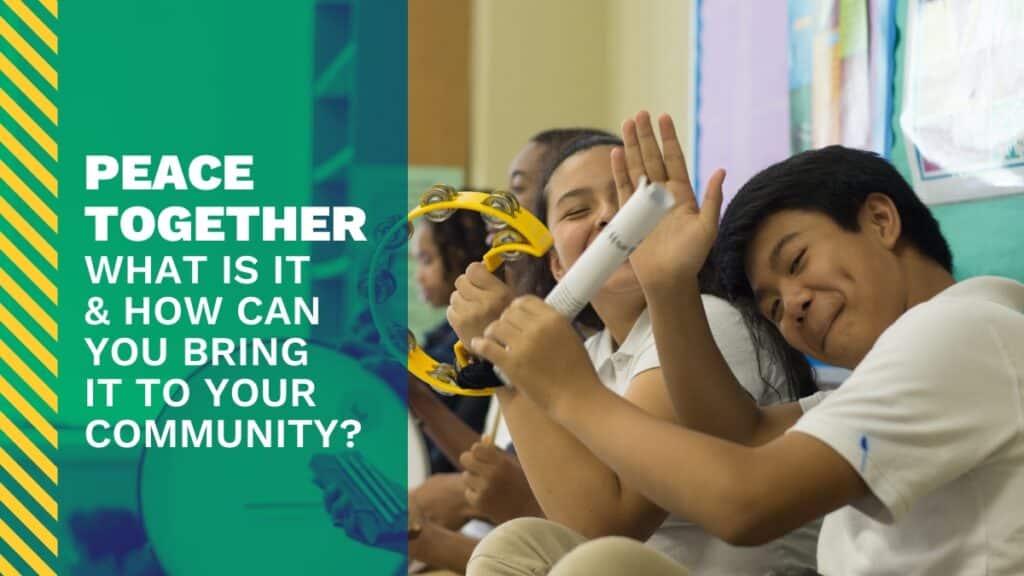
One Common Unity’s Peace Together intervention, funded by the Office of Victim Services and Justice Grants, aims to create safe spaces where young people can utilize their creativity and self-expression skills to heal from violent incidents.
The Peace Together staff collaborates with trusted adults in the community of the youth that have been impacted by gun violence. By leveraging the pre-existing relationships between youth and the trusted adults in their community, Peace Together is able to help the impacted individuals feel more at ease expressing themselves, enabling them to fully tap into their healing potential.
Through our unique intervention methods, our Peace Together program empowers youth to apply the skills they have acquired during intervention and use them in future scenarios, helping to contribute to the creation of more peaceful communities while simultaneously coping with their grief, loss, and trauma.
The 4 Spaces
A key intervention in the Peace Together program is the concept of the 4 Spaces. In our 4 Spaces Intervention, youth mindfully assess their emotional state and choose their own journey within the available spaces.
By assessing their own needs and having autonomy over their healing path, youth feel empowered to experience the different coping strategies available. This intervention takes place in community settings like schools or recreation centers and is co-facilitated by trusted adults from the community. The critical element in this intervention is that youth learn positive coping skills in each of the 4 Spaces that they can apply in various areas of their lives.
The 4 Spaces include a Mind Break Space, an Arts Expressive Space, a Group Processing Space, and a 1:1 Processing Space.
- MIND BREAK SPACE – The Mind Break Space is an intentional space where participants are among other members of the community, while explicitly not discussing the incident. Strategies in this space include playing games, listening to music, movement activities, conversations unrelated to the incident, and breathing exercises.
- ARTS EXPRESSIVE SPACE – The Arts Expressive Space includes two subsections: Internal Artistic Expression and Artistic Community Contribution. Strategies in this space include writing poetry, drawing pictures, creating mandalas, writing letters for grieving community members, and developing a community art project.
- GROUP PROCESSING SPACE – The Group Processing Space provides youth with a safe environment where they are able to verbally engage in a discussion surrounding the incident, process their emotions, share stories, build community, and discuss topics that are important to them.
- ONE-ON-ONE PROCESSING SPACE – The One-on-One Processing Space is designed as a check-in to assess individual needs, discuss how skills can be used to manage distress, prepare them for continued support, and provide further resources to the participants.
How Can You Bring The 4 Spaces Into Your Community
If you’re an educator or school administrator who’s interested in bringing the 4 Spaces intervention into your school, you can reach out directly to Ashlyn Harty at or you can contact our Intake Coordinator for more information or access to any of our services at .
If you’re a parent or guardian who’s interested in bringing the 4 Spaces intervention into your community after a violent incident, please reach out Ashlyn Harty at or contact our Intake Coordinator at . It may also be helpful to advocate to leaders in the school community for Peace Together’s services.
How To Get Involved With Peace Together
The Peace Together team provides training and consultation to community-based stakeholders. Anyone who is interested in participating in training or consultation may reach out directly to Ashlyn Harty at or they may contact our Intake Coordinator at . They can also speak directly to any members of our Peace Together team in order to get information or access to any of our services.
This blog post was produced by 2023-OCU-01, awarded by the Office of Victim Services and Justice Grants, Executive Office of the Mayor, District of Columbia. The opinions, findings, and conclusions or recommendations expressed in this webpage are those of the contributors and do not necessarily represent the official position or policies of the Executive Office of the Mayor.

